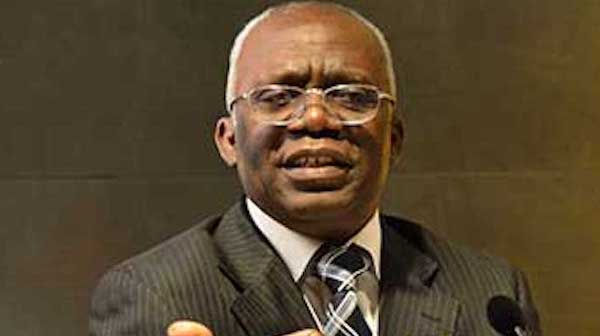Fresh facts have emerged in the controversies surrounding the cancellation of the sale of the Port Harcourt Refinery to a consortium led by Aliko Dangote.
Former President Olusegun Obasanjo stoked controversies on Thursday, January 2, 2024 when he disclosed that state oil company, Nigerian National Petroleum Company (NNPC) Ltd misled his successor, Late Umaru Musa Yar’Adua into rejecting a $750 million offer from Aliko Dangote, chairman of Dangote Group, to manage the Port Harcourt and Kaduna refineries in 2007.
“Aliko’s team paid $750 million for the PPP. My successor refunded the money, saying NNPC wanted to run the refineries. I later explained the situation to him, but he insisted,” Obasanjo explained.
Reacting to the disclosure from Obasanjo, prominent human rights lawyer and Senior Advocate Of Nigeria (SAN) Femi Falana shed light on the reasons behind former President Umaru Yar’Adua’s decision to cancel the sale of the Port Harcourt Refinery to a consortium led by Dangote Oil.
In a strongly worded statement by Falana who is the Chairperson of Alliance on Surviving Covid and Beyond (ASCAB), on Friday, January 4, 2025, he detailed that the move was carried out to rectify legal and ethical breaches and safeguard Nigeria’s national interest.
According to Falana, the sale, orchestrated by former President Olusegun Obasanjo in 2007, violated the ‘Privatisation and Commercialisation Act’, which mandates the Vice President to chair the National Council on Privatisation.
He disclosed that Obasanjo bypassed this requirement, sidelining then-Vice President Atiku Abubakar while personally managing the sale of public assets.
“On May 17, 2007, Obasanjo sold a 51% stake in the Port Harcourt Refinery to Bluestar Oil for $561 million and later sold a similar stake in the Kaduna Refinery for $160 million,” Falana revealed.
Bluestar Oil, comprising Dangote Oil, Zenon Oil, and Transcorp, faced criticism for conflicts of interest and lack of transparency.
Falana noted that unions such as NUPENG and PENGASSAN condemned the deals, alleging that the $561 million valuation for Port Harcourt Refinery significantly undervalued the asset, which was reportedly worth $5 billion.
Their protests culminated in a four-day strike that nearly crippled the Nigerian economy.
After a federal probe and mounting pressure, President Yar’Adua annulled the sales, a decision that Falana said faced no legal challenge due to its firm grounding in Nigerian law.
“The cancellation of the privatisation was never challenged in court because it was clear that it violated the letter and spirit of the Privatisation and Commercialisation Act,” Falana noted.
He further commended the role of NUPENG and PENGASSAN in advocating for national interest and called on them to remain vigilant amid renewed calls for the privatisation of Nigeria’s refineries.
“The Alliance on Surviving Covid and Beyond (ASCAB) hereby calls on NUPENG and PENGASSAN to intensify their historical struggle aimed at as a counterpoise to the renewed campaign for the privatisation of the nation’s refineries.”
“Those who are awaiting the privatisation of the refineries in a manner at variance with the national interest should be advised to set up their own refineries like the Dangote Group,” Falana urged while reinforcing the need for transparency and accountability in managing public assets.




